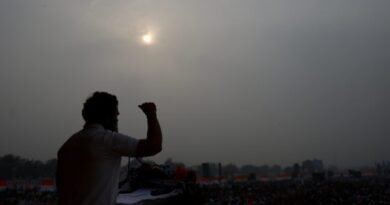Together, we can
It must not be forgotten that the responsibility to protect fellow humans from any outbreak rests upon every nation
One of the defining characteristics of the Indian State has been the humanitarian operations it has carried overseas to bring back stranded Indians whenever and wherever they may have been. The China rescue mission in the wake of the spread of Coronavirus was one that silenced naysayers. With minimal support from the virus-stricken country and much bickering, direct diplomacy helped us secure all our citizens back on home soil. The Government is now bracing up for the challenge to bring back its citizens from Italy and Iran, the second and third most COVID-19 affected countries after China. While the Wuhan rescue operations were at the very initial stages, when the deadly disease didn’t assume such alarming proportions confined as it was within the country, the current mission is being undertaken when COVID-19 has been declared a pandemic. Like in China, poignant stories abound of stranded Indians making desperate pleas, asking the Government some uneasy questions like where they are supposed to go and why they are being treated as smugglers. Panic-stricken students, fishermen and pilgrims in Italy are still not aware that they have to furnish a “Coronavirus negative” certificate before boarding a rescue aircraft. With the Italian health networks bursting at the seams, we are now flying out teams of doctors and virologists to test stranded Indians before bringing them back. This is a cumbersome process and in these stressed and stretched times, our embassies need to be proactive than protocol-bound in calming anxieties. Many Indians claim that their calls to emergency numbers, too, went unanswered. This suffering could have been avoided had the Indian embassy and by extension the Government ensured that the information about the requirement of the certificate from Indians returning from new Coronavirus hotspots had been disseminated properly. The embassy should have put up notifications on its website. A day-to-day interactivity should be immediately built in our response systems overseas and we should not be relying on SOS on social media, which is prone to fear-mongering than actual information.
Until the late Sushma Swaraj became the External Affairs Minister, India did not have a very good track record of looking after its expatriates/tourists/students stranded in foreign countries. Embassies were at best indifferent to their plight. She made a huge difference and changed the narrative. Let us maintain that efficiency and sensitivity. Remember, COVID-19 requires coordinated efforts.
The Pioneer




